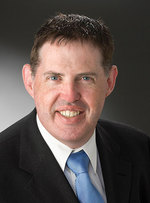WorkChoices expert joins Adelaide
 Law Law
One of Australia's foremost experts on labour law has returned to the University of Adelaide's School of Law. Professor Andrew Stewart is the new John Bray Professor of Law at the University of Adelaide, and also works for law firm Piper Alderman as a Legal Consultant. An Oxford law graduate, he held positions at the universities of Adelaide and Sydney before moving to Flinders University in 1991 where he helped to establish the law program. "I guess in one sense I'm returning 'home' to the University of Adelaide after being away for so many years," Professor Stewart said. "The time was right for the change, and I'm very pleased to have been appointed to such a prestigious chair." Professor Stewart's main interests are in employment law and workplace relations, contract law and intellectual property. He has written leading textbooks in the areas of labour law and intellectual property, as well as numerous articles for Australian and international journals. His most recent book is Stewart's Guide to Employment Law, published by Federation Press. Providing the most up-to-date and comprehensive information about Australia's workplace laws and regulatory systems, Stewart's Guide to Employment Law is aimed at HR managers, union officials, lawyers, educators and students. "Anyone who wants to understand the impact the WorkChoices reforms have had, or the changes the Rudd Government is proposing to make this year, will benefit from this book," he said. Besides completing his new book, Professor Stewart has also been busy analysing and explaining the new government's first tranche of legislative changes to the Workplace Relations Act. At the request of the Senate Committee that was asked to review the Transition to Forward with Fairness Bill, Professor Stewart gave evidence as to the effect of the Bill, and his views were referred to by all parties in the parliamentary debate that followed. He has also been widely quoted in the media, both locally and nationally, as to the likely impact of the changes. "I've always considered that academics have an important part to play in contributing to public debate and understanding in their areas of expertise. It's something I look forward to continuing to do in my new role," he said.
|





